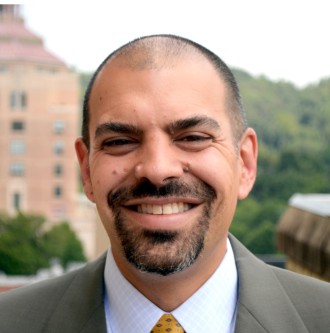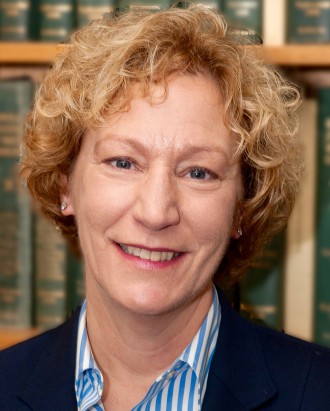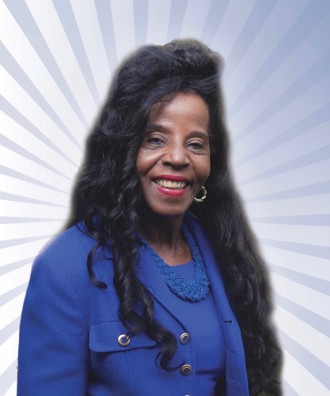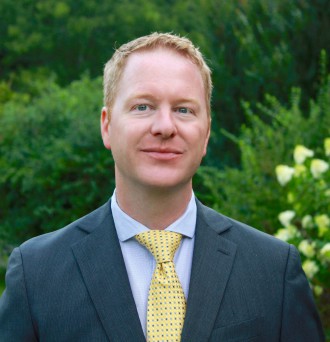As Asheville enjoys the benefits of a bustling economy, it also confronts challenges that come with growth, including concerns over housing, tourism, budgeting and certain segments of the city getting left behind. Xpress asked the candidates for mayor and City Council to share their thoughts on these topics and more prior to the Nov. 7 general election.
Voters in Asheville get to select from six candidates to fill three seats for City Council: Vijay Kapoor, Sheneika Smith, Gwen Wisler, Dee Williams, Rich Lee and Kim Roney. Six other candidates for Council did not make it through the Oct. 10 primary, including incumbent Cecil Bothwell. Vice Mayor Wisler hopes to hold onto her seat, while current Council member Gordon Smith chose not to run for another term.
Residents also have the chance to consider if they want to re-elect Esther Manheimer as mayor or get behind challenger Martin Ramsey, the two highest vote-getters in the primary.
Find out more about voter registration and where to vote on the Buncombe County Elections Services website: avl.mx/44w.
Click the candidates’ below to jump directly to their answers:
More election coverage
For more information on the candidates and their views, see all the Xpress news coverage of this election season, including the primary voter guide, stories about several candidate forums and a look at the races in Black Mountain and Weaverville:
- Final candidate forum highlights business issues
- Asheville candidates belly up to the bar on food issues
- Candidates in Black Mountain, Weaverville offer differing visions for future
- Asheville Council candidates forum puts service industry issues on the table
- Council candidates come out to support LGBTQ community
- Asheville voters to weigh in on district elections for City Council
- Two of three incumbents advance to general election
- Primary Voter Guide
- Mayoral candidates take on city’s challenges
- Race, housing take center stage in Council candidate forum
- Vying for endorsement, 4 City Council candidates identify as socialists
Question key
QUALITY OF LIFE: What are the three most important things Council can do to improve the lives of those who live and work in Asheville?
TOURISM: Is the city’s current approach to tourism sustainable? Why or why not, and how do you envision the city promoting tourism differently?
BUDGET: What steps should the city take to decrease current spending and increase revenue to fund new initiatives and projects?
STRs: Should the city take a harder line on whole-house and whole-unit short-term rentals? Why or why not? What do you think the city should do to balance property owners’ rights, tenants’ rights and the need for affordable housing?
EQUITY: What do you see as the most critically underserved populations in Asheville and what do you plan to do to bring more city attention and resources to them?
Candidates for mayor
Editor’s note: Candidate Martin Ramsey did not respond to repeated invitations to participate in the Xpress Voter Guide.
Esther Manheimer
Website: manheimerformayor.com
Occupation: Mayor, lawyer
Previous candidacy: Incumbent, elected in 2013; elected to Asheville City Council in 2009
Endorsements: AFL-CIO; Sierra Club; Equality NC; Buncombe County Commissioner Al Whitesides; state Sen. Terry Van Duyn
 QUALITY OF LIFE: I have worked to ensure Asheville is an open and inclusive city where people from all walks of life are included and safe. It’s critical to maintain our identity, increase equity and preserve Asheville’s unique character and quality of life. Council must enhance the affordable housing program (leveraging $25 million bond funds), manage growth and economic development to increase livability in keeping with our community’s vision for quality jobs, quality education, safe neighborhoods and a vibrant downtown.
QUALITY OF LIFE: I have worked to ensure Asheville is an open and inclusive city where people from all walks of life are included and safe. It’s critical to maintain our identity, increase equity and preserve Asheville’s unique character and quality of life. Council must enhance the affordable housing program (leveraging $25 million bond funds), manage growth and economic development to increase livability in keeping with our community’s vision for quality jobs, quality education, safe neighborhoods and a vibrant downtown.
TOURISM: The growing number of tourists visiting Asheville, while supporting businesses, jobs and a vibrant downtown, creates a strain on city infrastructure and impacts Ashevilleans’ way of life. The city is not in the tourism promotion business —that’s the TDA [Tourism Development Authority]. The TDA collects the room tax, $17 million a year. By state law, a quarter of the funds are available for city/county/nonprofit capital projects. The room tax must fund infrastructure improvements, and the TDA must approach tourism sustainably.
BUDGET: Since my time on Council, the city has emerged from a recession and has dramatically grown its capital investment program, dedicating a revenue stream to transportation, sidewalk, pedestrian safety and other infrastructure improvements. Last year, the voters agreed to grow that investment by overwhelmingly approving the affordable housing, transportation, and parks and recreation bonds. I understand that these investments must be coupled with economic efficiencies and taxes that don’t overburden our residents.
STRs: The city has more STRs than Charlotte, Raleigh, Durham and Wilmington combined; therefore I support regulating the STR market to maintain the integrity of our neighborhoods and promote affordable housing. Asheville values community, and the growth of STRs affects our quality of life. I support the compromise Council struck banning whole-house STRs in neighborhoods while allowing folks to rent a room in their home. I support expansion of the STR ban in the River Arts District.
EQUITY: The city must strive for greater equity, whether in transit, parks and recreation, pedestrian safety, affordable housing, or police and fire services. That is why the Council’s Vision 2036 goals include using a racial equity lens to review and achieve the city’s strategic goals. As a bold step in the right direction, the city hired an equity manager, an internal auditor focused on delivering and measuring equity in service delivery, contracting, employment and capital investment.
Candidates for City Council
Vijay Kapoor
Website: kapoorforcouncil.org
Occupation: Municipal budget consultant (small-business owner)
Previous candidacy: None
Endorsements: Sierra Club, Equality NC, former Council member Chris Pelly, neighborhood advocate Valerie Hoh, former state Rep. Patsy Keever
QUALITY OF LIFE: We need Asheville to be a place where all of our residents go to sleep each night feeling safe, fed, healthy and valued. To do that, the three most important things that I think that Council can do are: 1) to focus on the needs of Asheville’s residents and neighborhoods, because many of them are struggling and we’re not doing a good enough job as a city of engaging them, educating them or of listening to their needs; 2) to have development policies that provide for rational and responsible development, including pedestrian, bike and road infrastructure; 3) to work to make sure that our local economy is diversified so that we can raise wages and better weather an economic recession.
TOURISM: Asheville (and the region) needs to make sure that it has a diversified local economy so that we can raise wages and better weather an economic recession. If tourism were to completely stop, Asheville’s economy would be in serious trouble. That said, tourism’s cyclical nature is of concern to me here in Asheville — it tends to do badly during recessionary periods, and we’ve had seven years of economic growth. There also seem to be concerns in Asheville that we’re losing our unique character. I’d like to see the city and the Tourism Development Authority (which is the entity that really controls tourism promotion) work together to see if we can convince some of these tourists to relocate their businesses, start their own businesses or set up branch offices for their current employers here in Asheville.
BUDGET: Because the budget plays such an important role in the city’s operations, I have called for a five-year operating budget projection. I advise local governments nationally on their finances, and it’s a best practice for cities to publish five-year projections of operating revenues and expenditures. These projections are important because a one-year budget doesn’t show the full impact of funding decisions — it only shows what the city expects to happen during that specific period. Because most city expenses are employee-related, because we expect those costs to happen each year (or recur), and because those costs tend to grow faster than tax revenues, we need to look out over a couple of years to truly understand Asheville’s fiscal health. Given that, we should be looking across city operations to identify opportunities to partner with other governments (such as the county) and nonprofits to comprehensively tackle issues facing Asheville.
STRs: I support short-term rentals only as homestays — meaning that the host needs to be on the premises of the rentals. Having a host on the premises will significantly cut down on any noise issues and will also provide a direct point of contact to address any problem. Furthermore, with regard to whole-home/apartment rentals I’m concerned about the hollowing out of communities. By permitting short-term rentals as homestays, we allow people a limited way to use their property to participate in the tourist economy.
I would further like to see enhanced enforcement of the current rules to reduce the number of STRs operating illegally. I am willing to consider a pilot program for accessory dwelling units (again, as homestays) limited in time (18 months) and number (125) to gather data and evaluate their impact. For my in-depth position on STRs, please go to the “Issues” section on my website: www.kapoorforcouncil.org.
EQUITY: One of the reasons that I decided to run for City Council was my experience helping residents of a mobile home community in South Asheville whose mobile home park had been sold to build a new apartment complex. These residents, many of whom had small children, were left with little time and inadequate resources to move. I offered my help to parishioners from a local church who were helping the residents, and we worked behind the scenes to successfully get more funds from the developer for the residents to help them relocate. That experience drove home the point for me that we have families and individuals in this city who are struggling and are vulnerable to the change happening around them. As a city, we need to recognize that and listen to these communities about what they believe they need to ensure they have the same opportunities as everyone else.
Sheneika Smith
Website: sheneikaforasheville.com
Occupation: Program instructor/community engagement coordinator (Green Opportunities)
Previous candidacy: None
Endorsements: Sierra Club, AFL-CIO, Equality NC, Ignite NC
QUALITY OF LIFE: Asheville is an economically segregated community. Putting equity at the center of economic development will allow larger segments of Asheville to realize their wealth potential and support family sustainability. I plan to look at the local supply chain and encourage startups and business expansion to create a more robust, local, entrepreneurial ecosystem.
I would also like to look into property tax relief programs that will help protect the elderly, minority homeowners, disabled veterans and other longtime residents. This program’s aim is to retain homeowners in gentrifying neighborhoods and preserve our historic and cultural identity in the midst of booming growth.
Asheville is home to six food deserts. Low wages, insufficient transit options and the lack of economic opportunities all play a factor in the inability to place a healthy meal on the table. I support the creation of worker-owned grocery stores — a solution that addresses hunger and community-based economic development.
TOURISM: The metrics that govern our success should be widened to take into account a more democratized economy that honors our shared cultural heritage. Tourism will likely remain an important part of our economic strategy, so I envision an Asheville that works for everyone. I will push to generate “cultural tourism” by focusing on minority enterprise development and highlighting the rich artistic expression of subcultures within our city.
The next step is how we market Asheville to outsiders. An inclusive collective narrative is the beginning of rebuilding an economy that contains ideas, people, talents and innovations that reflect the many shades of our city. Currently, we tend to promote to a certain demographic, and that attracts and benefits a certain demographic. Through future appointments to the Buncombe County TDA, and equity planning with the TDA members and Chamber of Commerce, Council can steer Asheville toward inclusive market research, business goal-setting and strategy building.
BUDGET: To decrease current spending, Council should collaborate with TDA to expand the shared costs around infrastructure, public works and other city-owned enterprises expected to attract overnight visitors and generate tourism-related tax revenue. The city should focus on waste reduction and finding ways to curb spending; I would look closely at the price tag for out-of-town consultants.
The city can increase revenue by raising the standard of living among citizens struggling to make ends meet. A rising tide would lift tax revenue and increase disposable income. Therefore, supporting minority-owned and community-based business development, workforce development initiatives and a family sustainability model will reap dividends. These projects will help us increase financial independence and decrease spending on services. Poverty hurts our people and is a drain on our city. When we make sure all our residents are paid living wages and have the supports they need, our city will be stronger overall.
STRs: Asheville is in the midst of a twin crisis of housing supply and overall affordability. I sympathize with residents witnessing the hotel industry making record profits while they struggle to pay rising property taxes and have turned to the sharing economy just to get by. Also, only around 20 percent of African-Americans inside city limits own their own homes, and this conversation excludes their hopes and dreams. I also hear the concerns of renters who have difficulty finding a place to live because of homes being turned into STRs, and advocates who fear out-of-town corporations hollowing out neighborhoods.
To alleviate the affordable housing problem, we must build units in the missing middle for our service industry workforce. That is why I support more money for the Affordable Housing Trust Fund. I believe in a middle path, utilizing a citywide regulation scheme through conditional use permitting to combat the excesses of the STRs.
EQUITY: Again, Asheville has become an economically segregated community, where it is far too apparent who thrives and who struggles to survive. Wealth inequality is pervasive around the world but falls hardest on communities of color that were deliberately boxed out of wealth-building opportunities due to a long history of violence, intimidation tactics and discrimination codified by federal law. Therefore, inequity has to be overturned in the same manner, through policy improvements on federal, state and local levels.
I have spent the last few years of my life fighting and advocating racial, social and economic justice issues. I will be working alongside the equity and inclusion manager and the Blue Ribbon Committee of the Human Relations Commission in advancing racial equity reviews in order to achieve our city’s strategic goals in health, education, housing and economic mobility. Other tangible actions are mentioned in my previous responses.
Gwen Wisler
Website: gwenwisler.com
Occupation: Owner, Asheville Profits LLC
Previous candidacy: Incumbent, elected to City Council 2013; elected vice mayor in 2015
Endorsements: Equality NC, Sierra Club, Buncombe County Commissioner Al Whitesides
QUALITY OF LIFE: 1) Protect and enhance the experience of living in and visiting neighborhoods (parks and plazas, street trees, place-sensitive zoning and parking management). 2) Use funding from the recent bond referendum to model mobility options (walking, bicycling, transit) to increase neighborhood-to-neighborhood connectivity and to lower family transportation costs. 3) Make Asheville a role model for equity and inclusion. I’m championing the creation of a Human Relations Commission to review current ways we do business and to provide guidance for future programs and projects that assure equity and inclusion principles are embedded in policy.
TOURISM: Everyone understands Asheville’s historic appeal and current status as a top destination for tourists. What threatens its sustainability is its rapid growth beyond the capacities of basic city infrastructure and services. Protecting that important revenue stream and the quality of life Asheville residents have a right to expect will require a closer and more innovative alliance between city leaders, tourist-serving businesses, the Chamber of Commerce and the Tourism Development Authority. It’s a problem most cities would love to have; yet it will take visionary leadership to pull together (and hold together) a private-public partnership that can share the costs, leverage the opportunities and mitigate the negative impacts. I believe the will is there among the leaders, and I believe, as a former corporate CEO and the current vice mayor of Asheville, I understand what’s at stake for everyone and can help facilitate a discussion that leads in positive directions.
BUDGET: Every organization strives to find ways to keep costs from overrunning revenues. For most government entities, rising demand for services is outpacing available revenues. The most obvious solutions — raising taxes or cutting programs — aren’t popular. There’s a powerful incentive to innovate, particularly when it comes to public-private partnerships. Fortunately, the most promising ones are those that demonstrate success at the local level, where the impacts of modest investments and well-run programs produce results everyone can see in the short term.
I’ve covered an opportunity in question No. 2. Another addresses housing affordability. The city of Asheville, nonprofits specializing in affordable housing and some regional banks are exploring combinations of developer incentive programs, community land banks, low-interest loan programs and other innovations to build housing units to serve families and singles earning varying percentages of the area median income. We hope to establish an innovative model combining those public-private pots of money.
STRs: I realize this is a vexing challenge in many areas experiencing growth pressures. That’s especially true in close-in neighborhoods with access to transit or with easy walking and bicycling connections to jobs and to most daily needs. Seattle, Portland, Vancouver, Los Angeles, San Francisco, Washington, D.C., and other high-appeal destinations are all struggling to find solutions. While there’s conflicting evidence about the potential long-term impacts of STRs on the pool of long-term rentals, there’s little doubt there’s a powerful perception of negative impacts and even less doubt that the perception drives pressure for regulation.
We’ve imposed a severe $500-a-night fine for violations of our rules limiting the neighborhoods where whole-unit STRs are allowed. And I’m against allowing expansions of areas where they are permitted.
EQUITY: As is the case with most communities across the country, Asheville has class, race, ethnicity and other divides. We are losing diversity because of the high cost of living and lower-wage jobs. I believe the city government has to be a role model in promoting equity and inclusion. We pay a living wage to all employees, and we’ve hired an equity and inclusion manager.
As discussed in the first question above, I’m advocating for the creation of a Human Relations Commission to guide our commitment to equity and inclusion. I’ve helped create incentive programs for developers who want to work with us in providing affordable housing units, and I’m looking forward to leveraging the affordable housing portion of the bond monies to create more options for those of our neighbors who are priced out of most housing opportunities.
Dee Williams
Website: dee4avl.com
Occupation: President, Dee Williams and Co. Inc.
Previous candidacy: Several unsuccessful bids for City Council, including in 2015, and one for Buncombe County Board of Commissioners
Endorsements: WNC Green Party, AFL-CIO, Teamsters, Democratic Socialists of America
QUALITY OF LIFE: 1) Use practices, policies and procedures to create living-wage jobs by investing/recruiting/procuring/contracting with locally based small businesses that pay a living wage and that are diverse from tourism-oriented, low-wage service economy jobs. 2) Increase affordable housing stock for people from a broad range of incomes and create permanently affordable housing that is transit-oriented development, with mixed use, so that good living-wage jobs can be created and more local people will be able to support the local economy. 3) Reduce automobile traffic and congestion by instituting county/regional land-use planning, so that a well-connected multimodal system of transit, greenways, bike lanes and trails can be used to connect people to jobs, education and health care. This system will also reduce carbon emissions.
TOURISM: The city’s approach is not sustainable, since most of the benefits are not accessible to the city and its residents; yet, city taxpayers bear the brunt of the infrastructure/traffic impacts, public safety and other costs via increases in ad valorem taxes and fees. These increases to support the growth of tourism need to be supported by negotiating a set percentage of the TDA ($2 million a year) tax be allocated to an infrastructure fund for repairs, and/or to maintain other city-owned assets, which can be designated as used by tourists. The TDA promotes tourism.
BUDGET: Current spending needs to decrease in management salaries and other costs, which have increased over 30 percent in the last three years, without increases in revenues. Debt has been used to finance the increases in the budget. Car registration fees need to be reduced by $10 per vehicle. Property taxes and local user fees like water/sewer need to be frozen. The city needs to create a half-cent increase in sales taxes to create a dedicated revenue stream for a multimodal transportation system. Our procurement/contracting practices need to be audited for cost savings.
STRs: Those occupied by owners need to be allowed, only. Those owned by out-of-town investors need to be banned because they hollow neighborhoods out. Vigorous enforcement is needed to guard against those that are not owner-occupied. Home hosts use STRs as a way to cope with escalating costs of owning a house in Asheville. Those that are whole-house reduce the affordable housing stock for long-term renters.
EQUITY: The biggest problem until now has been electing black Council members who have economic development/business development skills that are proven. I am regarded as the top minority economic development professional in the region, based on a record of unparalleled achievements. African-Americans are the poorest, most disinvested group in Asheville, according to local economic demographics. I will use the data that has been collected in the last year by the local coalition of black economic professionals, several diverse community groups, relevant academicians and Code for Asheville to disseminate the data, then use it to evaluate existing city programs that have not worked and use the existing funding for best practices that do work.
Rich Lee
Website: richworksfor.me
Occupation: Financial adviser
Previous candidacy: 2015 City Council (first runner-up)
Endorsements: AFL-CIO, state Rep. John Ager, state Rep. Susan Fisher
QUALITY OF LIFE: First, I believe traffic congestion and safety are some of the biggest ways Asheville has changed since I’ve lived here. Part of this is due to poorly planned development, especially in South Asheville. But part stems from the trend of commuters — 40,000 a day, at last count — living in the outskirts of the county and driving to work on city streets. We can relieve pressure on roads with housing options and transit for people who want to live and work here. But many of the roads themselves are a mess, too, thanks to delayed city maintenance and our slow-to-respond state DOT. Lastly, the city needs to create “neighborhood nodes” through a combination of corridor planning and incentives. Downtown is great. I work and shop there. But let’s look at making Patton, Tunnel, Charlotte and other corridors into walkable working, living and shopping areas for locals, as well.
TOURISM: No, this cycle of building hotels and advertising to increase demand doesn’t seem sustainable in the long run. Exact impacts are hard to calculate, but if you add tourists’ wear on roads and infrastructure, traffic, landfill waste, extra police and EMS calls, low wages and distorted property values, you could say (as one expert presenting to Council did) that the costs of tourism locally are somewhat higher than the benefits. What can we do differently? First, put some of the $17 million-$19 million a year in hotel room taxes to work on local needs like sidewalks and affordable artist spaces. Second, get real commitments from hotels on living wages, transit support and housing initiatives for service workers. Third, begin to promote Asheville as a town visitors share some responsibility for, not just an entertainment to be enjoyed and discarded — something like the ecotourism you see in other hot locales.
BUDGET: The municipal bonds approved by voters are a great start. Our labor market and other factors are driving 10 percent annual price inflation on infrastructure work. By comparison, the 2.5 percent interest we’re likely to owe on the bonds as a AAA-rated municipality is going to save us money in the long haul. My priority on Council is to get the bond projects done quickly, with transparency and accountability to the taxpayer, and stretch those dollars as far as they’ll go. In other areas, we’re going to benefit from filling out our city staff and being less dependent on highly paid interim positions and outside consultants. It’s less about reducing spending than about getting ahead of rising costs, and that’s going to take city government being lighter on its feet than we’re accustomed to seeing, one that’s forthcoming with the people of Asheville about what we’re up against.
STRs: Yes and no. In areas like downtown and the River Arts District where a complete lack of regulation is leading to planned “STR condos” (entire high-rises of vacation rental flats), I think we need to cap and control the growth of STRs. At the other end, I feel the city could be more flexible when it comes to individual property owners trying to rent their basement apartment, teachers who list their homes during the summer, and the like. I share worries that hot neighborhoods risk being turned over, tenants evicted and swaths of town hollowed out by absentee serial investors to make vacation communities with no real residents. I couldn’t support any proposal that opened the door to that. Does that mean I’m closed to tweaking the rules and striking a better balance? No. I think reasonable people on both sides of the issue can, and will, prevail.
EQUITY: There’s no group in town more threatened than our black community, which is dwindling in both real numbers and as a share of the city. After that, we need to be aware that our Latino/a neighbors, working artists, service workers and fixed-income retirees are squeezed by rising costs and stagnant wages. To help, we need to offer housing options at the lower end of the price range, yes, but we also need to increase incomes, and that means diversifying the economy, insisting at every turn on living wages and a career track from graduation to retirement. Lastly, if we’re truly committed to being a diverse, eclectic, resilient small town, we all need to commit to end racial disparity in policing, to make this a hospitable, welcoming community for black families, professionals and entrepreneurs, and a safe haven for immigrants and other historical targets of persecution.
Kim Roney
Website: kimroneyforasheville.com
Occupation: Piano teacher, bartender at The Mothlight
Previous candidacy: None
Endorsements: Equality NC; Council member Brian Haynes; Council member Keith Young; and locally owned, independent businesses like Harvest Records, Orbit DVD and The Mothlight.
QUALITY OF LIFE: 1) Addressing affordability while incentivizing living wages, especially among locally owned, independent businesses. 2) Fare-free, efficient bus transit, which is an issue at the intersection of affordability, access, equity and environmental concerns. Transit provides access to housing, jobs, child care, education and groceries. Fare-free is not only doable, it’s being realized in other cities across the state and will have a huge impact we will be incredibly proud of. We are beginning the process of an updated transit master plan, plus our City Council has shown strong support for system improvements. We need additional system improvements, especially addressing our Transit Center, and I will work to build private-public partnerships to realize these needs. 3) Getting real about racial equity in meaningful ways, such as prioritizing grassroots, community efforts in our budget process and adopting the suggested reforms to reduce racial bias in traffic stops.
TOURISM: No, it is neither reliably maintainable nor responsibly defendable. Asheville has a long history of a tourism-based economy, but I agree with my neighbors that it’s getting out of control. There are exceptions, but from my experience working in the hospitality industry in Asheville, the industry relies on low-wage labor. Regarding the hotel tax rate, which isn’t set by the city, what the city can do is work diligently to apply for TDA grant funding for sidewalk, transit, greenway and bicycle infrastructure, which will support our stated goals and shared values. Improved infrastructure citywide is good for businesses and attracts tourists, but it’s a necessary action to heal the divide and to benefit the people of Asheville.
BUDGET: I’m concerned about the amount we’re spending on consultant fees and planning documents that lack measurables, which would lead to success. We also need to address retention of our lower-level city employees through wages, since turnover leads to overtime and hiring costs. Our society greatly subsidizes vehicular traffic, but funding for fare-free transit has a higher rate of return, especially having a positive impact on parking, traffic and the environment. Additionally, we need apartments downtown that working people of Asheville living within the 30-40 percent AMI [area median income] can afford, promoting active transportation and quality of life for people who live here. Incentives for locally owned businesses, especially for those paying a living wage, are one way to grow and maintain the originality of Asheville. Decades of policies, redlining and gentrification have shuttered thriving businesses among communities of color, and that needs to be considered when addressing the economic health and sustainability of our city.
STRs: Homestays are here to stay and provide necessary income to many of the people using the current process. We need to bring accessory dwelling units (mother-in-law suites, detached basement apartments) into compliance so we can implement enforcement, which isn’t happening now. If I am elected, I will work to maintain the decision not to allow whole-home rentals or use-by-right, 20-room micro-hotels to develop in our neighborhoods. More than half the city is renters, impacted by the high cost of living and rising rents. The loopholes within the homestay permitting process, combined with lack of enforcement, are being taken advantage of. Competition for rates renters can’t afford means workers are pushed out of the city, which increases parking and traffic problems. I will work diligently to develop a one-per-person/address permitting solution that prioritizes people living in Asheville. Consequential extremes on both sides of a complete ban or full deregulation are untenable.
EQUITY: I realize there are many ways Asheville wants to be a progressive, welcoming city. However, there are still so many ways in which Asheville is not as progressive and inclusive as it could be, especially in regard to issues around racial equity. Recognizing my privilege as a white person, part of my role as an ally is to work with communities of color, allowing their perspectives and lived experiences to guide our work in dismantling systemic racism and systems of oppression. We also have infrastructure barriers that make transportation difficult or prohibitive for our disabled and aging population. Building private-public partnerships will amplify the work we need to do around sidewalks and transit. That’s part of my campaign for City Council, for us to “Be ’Bout it Being Better!”










After reading every candidate’s answers, I conclude that we can’t lose! All are such fine people. i wish these were our representatives in Washington and Raleigh! I hope that all of you will continue to stay highly engaged in serving us.